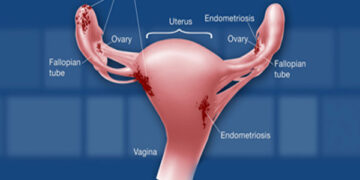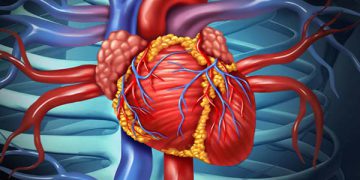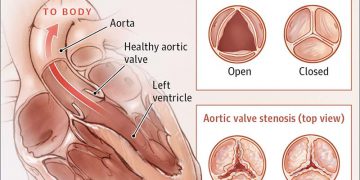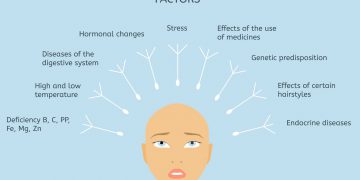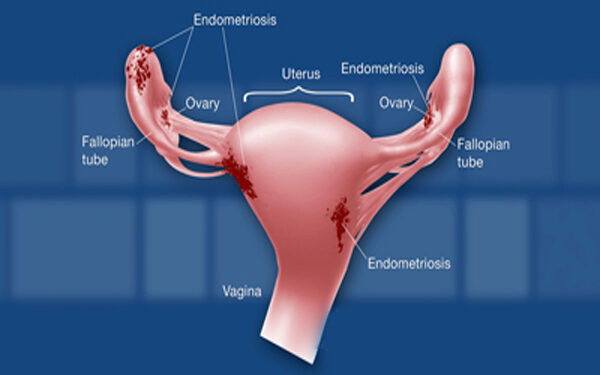Endometriosis is a chronic condition that affects an estimated 10% of women worldwide, causing painful symptoms and potentially leading to infertility. Despite its prevalence, this condition often goes undiagnosed or misdiagnosed, leaving many women suffering in silence. In Bangladesh, cities like Dhaka and Chittagong are home to countless women grappling with the challenges of endometriosis.
What is Endometriosis?
Endometriosis occurs when tissue similar to the lining of the uterus grows outside of the uterus, often on the ovaries, fallopian tubes, or other pelvic organs. This misplaced tissue continues to act as it normally would during the menstrual cycle, thickening and breaking down. However, because it has no way to exit the body, it becomes trapped, leading to inflammation, scarring, and the formation of adhesions.
Symptoms of Endometriosis
The most common symptoms of endometriosis include:
- Painful periods (dysmenorrhea)
- Pelvic pain, often worsening during menstruation
- Pain during or after sexual intercourse
- Heavy menstrual bleeding
- Infertility
Other symptoms may include fatigue, bloating, constipation, diarrhea, and nausea, particularly during menstrual periods.
Diagnosis and Treatment
Diagnosing endometriosis can be challenging, as symptoms often mimic other conditions. A definitive diagnosis requires a surgical procedure called laparoscopy, where a thin, lighted tube is inserted through a small incision to view the pelvic organs and take tissue samples for biopsy.
Treatment options for endometriosis vary depending on the severity of the condition and the individual’s goals, such as pain relief or improving fertility. Options may include:
- Pain medication, such as nonsteroidal anti-inflammatory drugs (NSAIDs)
- Hormonal therapies, like birth control pills or gonadotropin-releasing hormone (GnRH) agonists
- Surgery to remove endometrial growths, which can help alleviate pain and improve fertility
The Impact on Fertility
One of the most devastating consequences of endometriosis is its impact on fertility. According to a study conducted by the Bangladesh Endometriosis Society, up to 50% of women with endometriosis may experience infertility. The condition can cause scarring and adhesions that distort the pelvic anatomy, making it difficult for the egg to be released or fertilized, or for the embryo to implant in the uterus.
The Emotional Toll
In addition to the physical pain and potential infertility, endometriosis can also take a significant emotional toll on those affected. Women with endometriosis often report feelings of isolation, depression, and anxiety due to the chronic nature of the condition and its impact on their daily lives. The Bangladesh Endometriosis Society emphasizes the importance of mental health support for women dealing with this condition, as well as the need for greater understanding and empathy from family members, friends, and healthcare providers.
Lifestyle Changes and Alternative Therapies
While medical treatment is crucial for managing endometriosis, lifestyle changes and alternative therapies may also provide some relief. Engaging in regular exercise, maintaining a healthy diet, and practicing stress-reduction techniques like meditation or yoga can help alleviate symptoms and improve overall well-being. Some women also find relief through acupuncture, herbal remedies, or massage therapy. However, it is essential to consult with a healthcare provider before incorporating any alternative therapies into an endometriosis treatment plan.
Raising Awareness
Despite the significant impact endometriosis has on women’s lives, awareness of the condition remains low. Many women suffer for years before receiving a proper diagnosis, often being told that their pain is “normal” or “just part of being a woman.” Organizations like the Bangladesh Endometriosis Society are working to change this by educating the public and healthcare providers about the signs and symptoms of endometriosis.
Endometriosis is a complex and often misunderstood condition that affects millions of women worldwide. By raising awareness, promoting early diagnosis, and improving access to treatment, we can help women in cities like Dhaka and Chittagong and beyond to break free from the silent struggle of endometriosis. If you suspect you may have endometriosis, don’t hesitate to speak with your healthcare provider and advocate for your health.
Follow – https://healthhuff.com for More Updates






